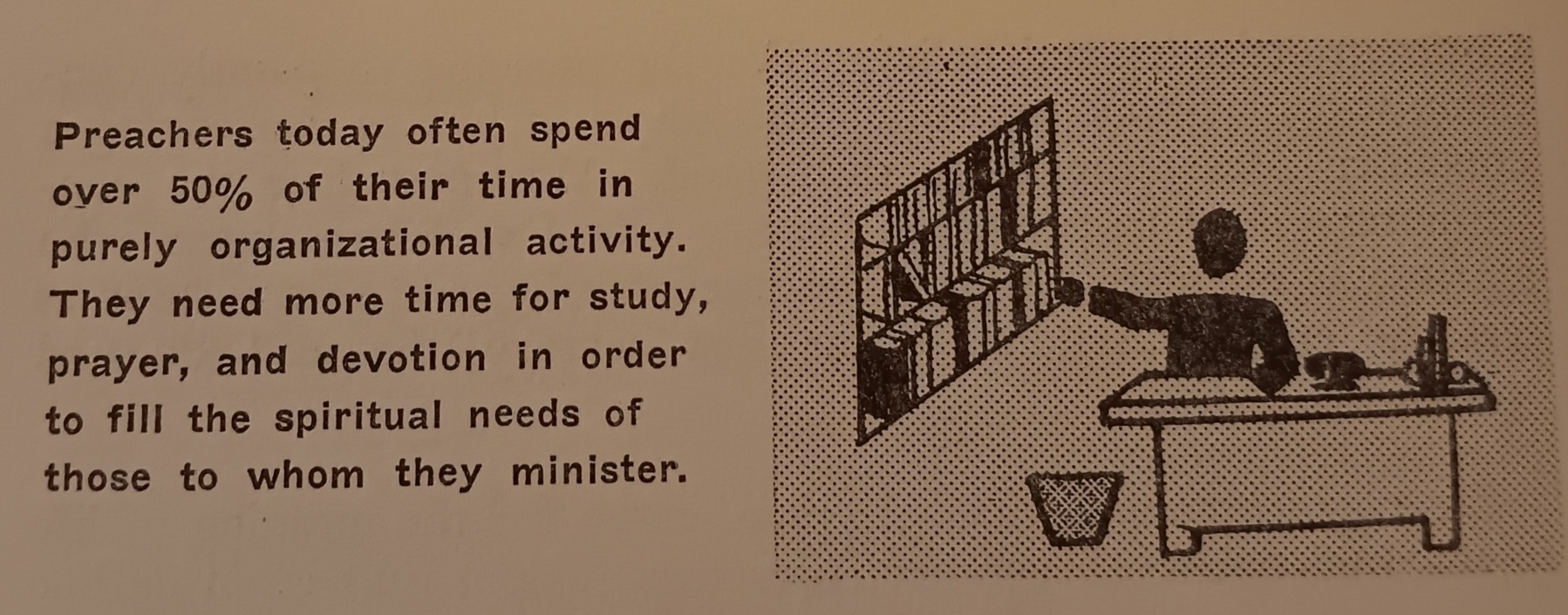
Currently reading: A Canticle for Leibowitz by Walter M. Miller 📚

Currently reading: A Canticle for Leibowitz by Walter M. Miller 📚

Currently reading: This America: The Case for the Nation by Jill Lepore 📚

Finished reading: The Virtue of Nationalism by Yoram Hazony 📚
A very readable book. Hazony’s arguments are clear, his writing lucid. One of his main contentions is that the best political order is “an order of independent national states.” He sees this order as the ideal mean between violent anarchy and hegemonic empire. While in a previous work Hazony looked at the Hebrew Bible as a source for philosophical reflection, in The Virtues of Nationalism he considers how the Old Testament ought to inform political theory. He argues that there is a “biblical preference” for the national state, though he doesn’t base his position solely on scriptural grounds. He’s especially critical of all “imperialist” political projects, of which he sees the European Union as the greatest contemporary example. The current “liberal imperialist” impulse, according to Hazony, owes much to Kant’s “enlightened” vision of humanity’s progress from anarchy to national independence to world empire. He contrasts the imperialist vision—given to abstraction, intolerant of those who demur at their utopian dreams for humanity—with that of the nationalist—a particularist, loyal to his nation but also humble and self-critical enough to be skeptical of over-extending his limited perception of the good. Much to chew on here, that’s for sure.
George Marsden, describing the conflicting impulses within modern fundamentalism (i.e., the religious New Right), which is partly a result of it being one of the heirs to that collection of diverse traditions known as American evangelicalism:
Fundamentalism…is fraught with paradoxes. It is torn between uncivil controversialism and the accepting attitudes necessary for being influential and evangelizing effectively. Often it is otherworldly and privatistic; yet it retains intense patriotism and interest in the moral-political welfare of the nation. It is individualistic, yet produces strong communities. It is in some ways anti-intellectual, but stresses right thinking and true education. It accentuates the revivalists' appeal to the subjective, yet often it is rationalistic-inductivist in its epistemology. It is Christianity derived from an ancient book, yet shaped also by the technological age. It is anti modernist, but in some respects strikingly modern. Perhaps most ironically, it offers simple answers phrased as clear polarities; yet it is such a complex combination of traditions and beliefs that it is filled with more ambiguity and paradox than most of its proponents or its opponents realize.
“Advent” by Sarah Klassen
(source: Rowan Williams' A Century of Poetry)
We are waiting (again) for the One
who has already come
and gone, leaving us
bereaved.
One waiting in the wings
for the cue - political, apocalyptic
or dramatic - to step into view,
descend,
be finally revealed
to the bewildered crowd -
complicit or without guile.
And to a remnant, impatient
for the curtain to rise on some
anticipated vindication. As if
flamboyant entry to a final act
will finally untangle everything:
a flawless denouement. As if
(if you’re not left behind)
a book will open up,
page after blinding page.
A prophet’s alleged to have said:
we cannot believe in one for whom -
for reasons philosophical,
emotional or rational -
we do not
(cannot,
will not any longer)
wait.
The first section of Center Church (“Gospel”) comprises two parts: “Gospel Theology” and “Gospel Renewal.” As Keller says on the opening page of this section: “The gospel is neither religion nor irreligion, but something else entirely—a third way of relating to God through grace. Because of this, we minister in a uniquely balanced way that avoids the errors of either extreme and faithfully communicates the sharpness of the gospel” (27). Keller’s burden in this section is to root his vision of ministry in the gospel and to show how gospel doctrine ought to be embodied and worked out in one’s actual ministry practices. The goal is to overcome the dichotomy that so easily arises between theory and practice. It’s easy to “understand” the rudiments of the gospel; much harder to be shaped and formed by the gospel in deep, cultural ways. This post will focus on part one (“Gospel Theology”), in which Keller clarifies what is and is not the gospel. The following three headings correspond to the three chapters in this part of Center Church.
The gospel is not everything
In chapter one, Keller outlines what the Bible means by “the gospel.” Strictly speaking, not everything in Scripture is “gospel,” even if every part of the Bible is inspired by God and, at least in some way, serves the proclamation of the gospel. As Keller explains, “The gospel is a message about how we have been rescued from peril” (29). He numbers off a few distinctive features of the gospel. The gospel is, first, good news, not good advice. It is not primarily about us—about what we do, or how we respond. It is not mainly “a way of life”—a moral code or rigorous common life. Instead, it’s about what’s been done for us. Second, the gospel is good news announcing that we have been rescued or saved. Keller makes explicit here that the gospel entails rescue from God’s wrath at the end of history (cf. 1 These 1:10). Though there are numerous effects of human sin that we experience in profound ways (e.g., suffering, disease, poverty, racism, war, aging, death), the “root” of our problem is that we are alienated from God, separated from his love and mercy, and in great need of reconciliation. Thus, third, the gospel is news about what has been done by Jesus Christ to put right our relationship with God. The good news is that God saves sinners: that in the death and resurrection of Christ, God has reconciled us at great cost to himself.
Next, Keller clarifies how the gospel relates to its fruits. While the gospel is good news about what God has done (not mainly about what we do), it does result in a new way of life and people behaving in transformed ways. As Keller explains, “This grace [in the gospel] and the good deeds that result must be both distinguished and connected. The gospel, its results, and its implications must be carefully related to each other—neither confused nor separated” (30). Calvin loved the maxim “distinction without separation” and Keller employs it well here in discussing the connection between the gospel and its faithful expression in our lives. (Of course, this topic has generated no small amount of discussion in recent years.) The gospel is not caring for the poor, working for justice, or loving one another within the community—as incredibly valuable as those things are! It is, rather, an accomplished work: the substitutionary work of Christ in our place, which we must receive before we respond in any other way.
Keller then proceeds to make his famous distinction between two opposing “errors” or “enemies” of the gospel: religion (legalism/moralism) and irreligion (antinomianism/relativism). Listen to how he unpacks them: “Legalism says that we have to live a holy, good life in order to be saved. Antinomianism says that because we are saved, we don’t have to live a holy, good life.” Throughout his ministry, Keller used these two “ditches” to expose how easily we twist or misappropriate the message of the gospel. This then allowed him to highlight how much better God’s grace is than these counterfeits. As he explains,
A very clear and sharp distinction between legalism, antinomianism, and the gospel is often crucial for the life-changing power of the Holy Spirit to work. If our gospel message even slightly resembles “you must believe and live right to be saved” or “God loves and accepts everyone just as they are,” we will find our communication is not doing the identity-changing, heart-shaping transformative work [it was intended to do].
Finally, Keller unpacks the two basic ways of answering the question “What is the gospel?” One approach is more narrow and individualistic, seeking to answer the question “What must I do to be saved?” The other approach—more cosmic and expansive—sets out to answer the question “What hope is there for the world?” One question focuses more on individuals, while the other focuses on the world. Keller is balanced in his view, arguing that there is no single way to present the gospel. Yet, he’s also clear that either approach, if isolated from the other, risks become truncated and reductionistic. He warns, for instance, that answering the individualistic question without addressing the hope for the world “can play into the Western idea that religion exists to provide spiritual goods that meet individual spiritual needs for freedom from guilt and bondage” (32). He appeals for ministers to be thoughtful and robust as they incorporate all the elements of the biblical grand narrative into their preaching and gospel presentations. Keller proceeds to work through the various “chapters” of the biblical drama—creation, fall, redemption, restoration—outlining how such answers can provide a satisfying gospel presentation for “religious” and “irreligious” people alike.
The gospel is not a simple thing
Having outlined the main tenets of the gospel, Keller proceeds in chapter two to complicate the picture somewhat. While the gospel is a definite message with identifiable contours, there is also an “irreducible complexity” to it. Keller wants to “resist the impulse, mainly among conservative evangelicals, toward creating a single, one-size-fits-all gospel presentation” (39). When we set up our preferred “formula” for presenting the gospel as the biblical formula, we risk ignoring or minimizing how much diversity actually exists within Scripture’s construal of the gospel.
Keller begins by showing how various biblical writers use quite different terminology in describing the good news about Jesus the Messiah. For instance, the kingdom of God is a major theme in the Synoptic gospels, while the Gospel of John essentially does not mention it. John does, however, speak much about eternal life. As Keller points out, these concepts are not synonymous, but there is a way of understanding them as overlapping realities that complement one another. Moreover, when we add Paul to the mix, we find a much stronger accent on justification. Rather than seeing these as mutually exclusive descriptors, Keller suggests that the distinctive vocabulary of these authors can still be synthesized (especially around the theme of “redemption through substitution”).
Next, Keller argues that one of the best ways to present the gospel in all its depth and fullness is to connect it to the Bible’s story line and the “intercanonical” themes that hold the Bible together. Instead of presenting the gospel as a free-floating message, this approach allows the accent to fall on the hope of the gospel for this world and the emphasis on a renewed creation. Because there are so many themes that run throughout the Bible, it allows us to magnify and highlight various aspects of Christ’s redemptive work. Keller works through a few examples to whet the appetite: “exile and our homecoming,” “covenant and its fulfillment,” and “kingdom and its coming.” A good exercise for me (and I venture I’m not alone) would be to reflect on how often my articulation of the gospel—I’m thinking here mainly about preaching—actually incorporates these various thematic elements. No need to be overly rigid with this exercise, but it would be good to think more intentionally about this.
Keller finishes the chapter with a brief call for contextualization. One of the reasons that the gospel is portrayed with such depth and richness in Scripture is owing to the great diversity of human experience. As he explains, “Humanity, in both its perfect design and fallen nature, is…complex and varied. The gospel has supernatural versatility to address the particular hopes, fears, and idols of every culture and every person” (44). If we reduce or over-simplify the gospel, we may (inadvertently) deprive it of achieving resonance with various peoples and cultures.
I’m reminded of what Rowan Williams, writing in the Prologue to his brilliant On Christian Theology, describes as the “communicative” mode of theology. As a distinct posture of theologizing, communicative theology, according to Williams, seeks “to witness to the gospel’s capacity for being at home in more than one cultural environment, and to display enough confidence to believe that this gospel can be rediscovered at the end of a long and exotic detour through strange idioms and structures of thought.” Williams is gesturing here to something similar to what Keller is hinting at: both the peril and the promise of gospel contextualization. The vast, multi-faceted reality of human experience does not need to be reduced in order to receive a simplistic gospel message. Rather, the unexplored depths of the gospel begin to emerge and come into focus as it comes in contact with various peoples, cultures, time periods, and so on. Williams suggests that such encounters “may uncover aspects of the deposit of belief hitherto unexamined.” To be sure, such an encounter has the potential to undermine the faith, transforming it beyond recognition. Still, the risk is worth the reward. As Williams points out, this communicative mode requires a level of trust in the theological tradition—“a confidence that the fundamental categories of belief are robust enough to survive the drastic experience of immersion in other ways of constructing and construing the world.” A truncated, reduced gospel—the kind that Keller warns of in this chapter—will shrink from such deep immersion in “alien” contexts. But the biblical gospel compels us toward this sort of missionary encounter precisely because it (and we) will be better for the experience.
The gospel affects everything
In the final chapter of part one, Keller rounds out his discussion by arguing that the gospel—while not to be identified with all the good that we might do—does affect or impact virtually everything we do. As he explains,
Even though the gospel is a set of truths to understand and believe, it cannot remain a set of beliefs if it is truly believed and understood…. Scripture teaches that the gospel creates an entire way of life and affects literally everything about us. It is a power (Rom 1:16-17) that creates new life in us (Col 1:5-6; 1 Pet 1:23-25). (46)
Drawing on Simon Gathercole’s three-point outline of the gospel, Keller shows how the well-worn tenets of the faith have revolutionary implications for how we live. First, he highlights the incarnation and the “upside-down” aspect of the gospel. Christ’s pattern in Philippians 2:5-11 is the blueprint here: though Jesus was rich, yet for our sake he became poor. The first shall be last. The poor and persecuted are blessed. Keller is highlighting the “upside-down” logic of the incarnation. The kingdom of God operates according to a completely different value system than what we’re used to (e.g., valuing power, recognition, wealth, status). As Keller notes, “The gospel…creates a new kind of servant community, with people who live out an entirely alternate way of being human. Racial and class superiority, accrual of money and power at the expense of others, yearning for popularity and recognition—all are marks of living in the world. They represent the opposite of the gospel mind-set.” (47)
Second, Keller points to the atonement and the “inside-out” aspect of the gospel. The religious leaders of Jesus’s day fixated on externals—covenant boundary markers like Sabbath, circumcision, dietary laws, and so on. Jesus, however, emphasized the necessity of a transformed heart (cf. Mk 7:1-23), all the while not denigrating the importance of obedience. In characteristic fashion, Keller summarizes the difference this way:
Traditional religion teaches that if we do good deeds and follow the moral rules in our external behavior, God will come into our hearts, bless us, and give us salvation. In other words, if I obey, God will love and accept me. But the gospel is the reverse of this: If I know in my heart that God has accepted me and loves me freely by grace, then I can begin to obey, out of inner joy and gratitude. Religion is outside in, but the gospel is inside out.
Third, Keller looks at the resurrection and the “forward-back” aspect of the gospel. Here, Keller is highlighting the “already-not yet” aspect of Jesus' work. On one hand, Jesus’s resurrection really does signal the beginning of the new creation. On the other hand, we do not currently experience the fullness of God’s kingdom; we still sin and die and feel all the ill-effects of a sin-cursed world. Things are, in other words, not yet as they’re supposed to be. That means we live in the tension between the “already” of Christ’s victory over sin and death at his resurrection and the “not yet” of his final victory when he returns to consummate his kingdom. Thus, we live and evangelize and work for justice and perform deeds of mercy within this tension between these two poles.
In highlighting these central aspects of the gospel, Keller means to show how far-reaching are the implications of the gospel—and how category-defying will the community be that lives by it. In other words, a church shaped by these realities will not fit neatly into the normal categories (e.g., political, economic, social) that people typically use to judge human groups. It will be, according to Keller, “an unusual hybrid of various church forms and stereotypes.” It will blend an emphasis on personal conversion and church planting with an emphasis on deep community, care for the poor and oppressed, cultural renewal, and the practice of spiritual disciplines. While in Keller’s mind very few churches or denominations do all these emphases well, he still insists that the gospel demands we pursue and cultivate them all—as much as we’re able.
In the final section of the chapter, Keller works through various areas of life—almost as “test cases”—to demonstrate what a gospel-shaped approach might look like. In each case, he seeks to avoid the ditches on either side—that of the “moralist” (religion/legalism) and the “relativist” (irreligion/pragmatism)—by charting the course that better conforms to the gospel. The areas that he addresses include: discouragement and depression, love and relationships, sexuality, family, self-control, race and culture, witness, human authority, guilt and self-image, joy and humor, and attitudes toward class. Obviously, any of those topics could merit a book-length treatment by itself. Keller is merely sketching the outlines of how the gospel might speak to these complex problems of the human condition. Even so, there is much wisdom to be gleaned here. Even many churchgoers have little skill in connecting the incarnation or the cross to something so prosaic as their characteristic responses to criticism or their slavery to the expectations of others.
I think the best way to end this summary of part one is to let Keller have the last word:
Most of our problems in life come from a lack of proper orientation to the gospel. Pathologies in the church and sinful patterns in our individual lives ultimately stem from a failure to think through the deep implications of the gospel and to grasp and believe the gospel through and through. Put positively, the gospel transforms our hearts and our thinking and changes our approaches to absolutely everything. When the gospel is expounded and applied in its fullness in any church, that church will look unique. People will find in it an attractive, electrifying balance of moral conviction and compassion.
George Marsden, describing the “American pattern of secularization” at work in American politics (ca. 1896 to 1968):
Secularization in America took place not by a developing hostility between religion and the dominant culture, but by a blending of their goals. So Republican-Protestant hegemony no longer had to be explicitly Protestant. It just represented a certain concept of civilization. Civilization was equivalent in most minds to Christian civilization. It could be advanced by reforming progressive moral principles that people from all traditions might share. Many Democrats of the era, represented by [William Jennings] Bryan and [Woodrow ]Wilson, adopted this slightly secularized Protestant vision as much as did Republicans. The immense American missionary enthusiasm of this era, sweeping through it [sic] colleges, reflected this same impulse to help the world by advancing Christian civilization. Wilson’s secularized postmillennial vision of the American mission—to make the world safe for democracy—reflected a similar outlook. Religion, in short, had begun to work toward consensus.

Finished reading: Out of the Silent Planet by C.S. Lewis 📚
Kristyn took this one on her NYC trip

They just don’t make ‘em like they used to (in this case: covers to popular Christian books):
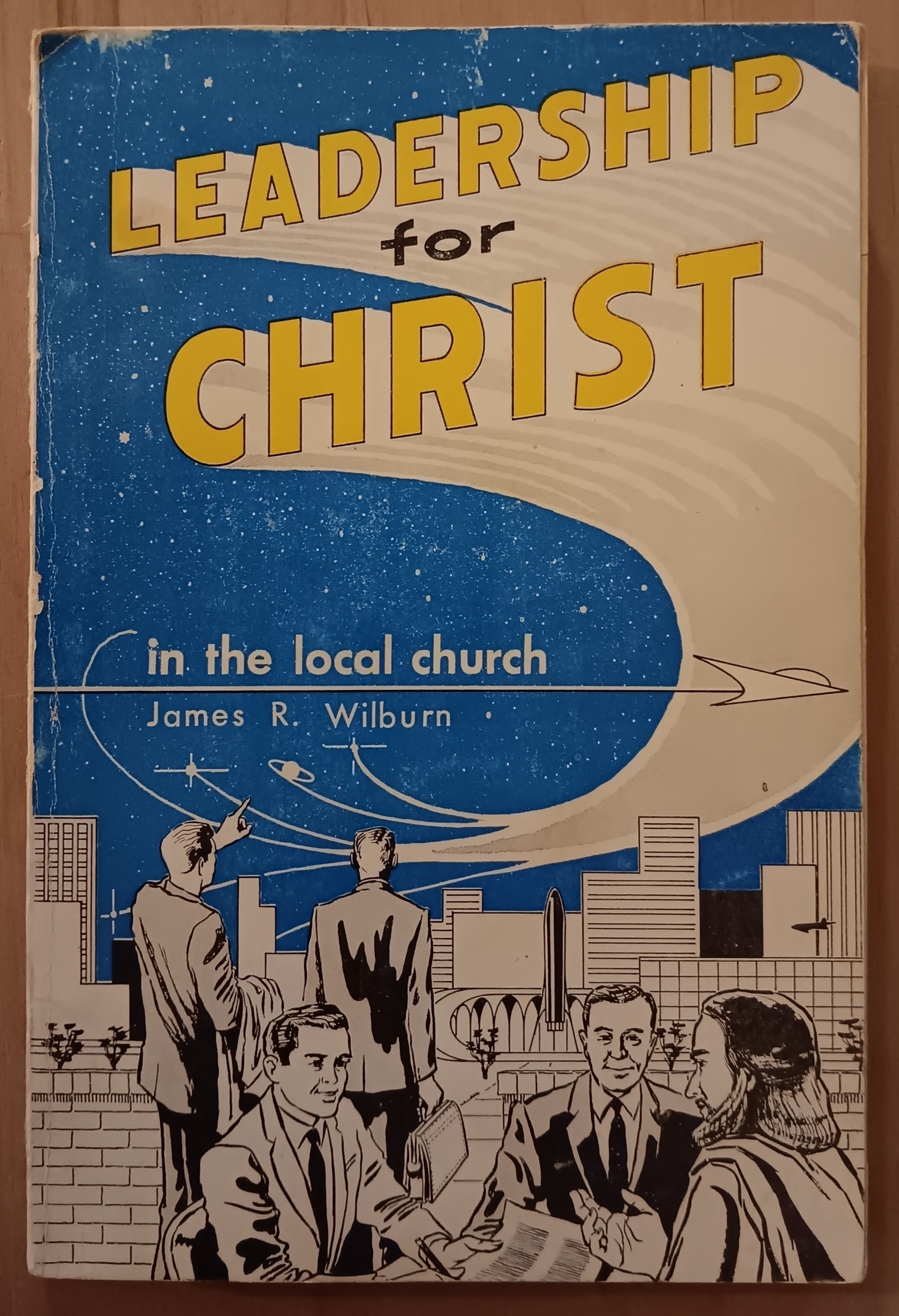
As wild as it initially appears, though, the cover becomes slightly more explicable when you read the first page of the book:
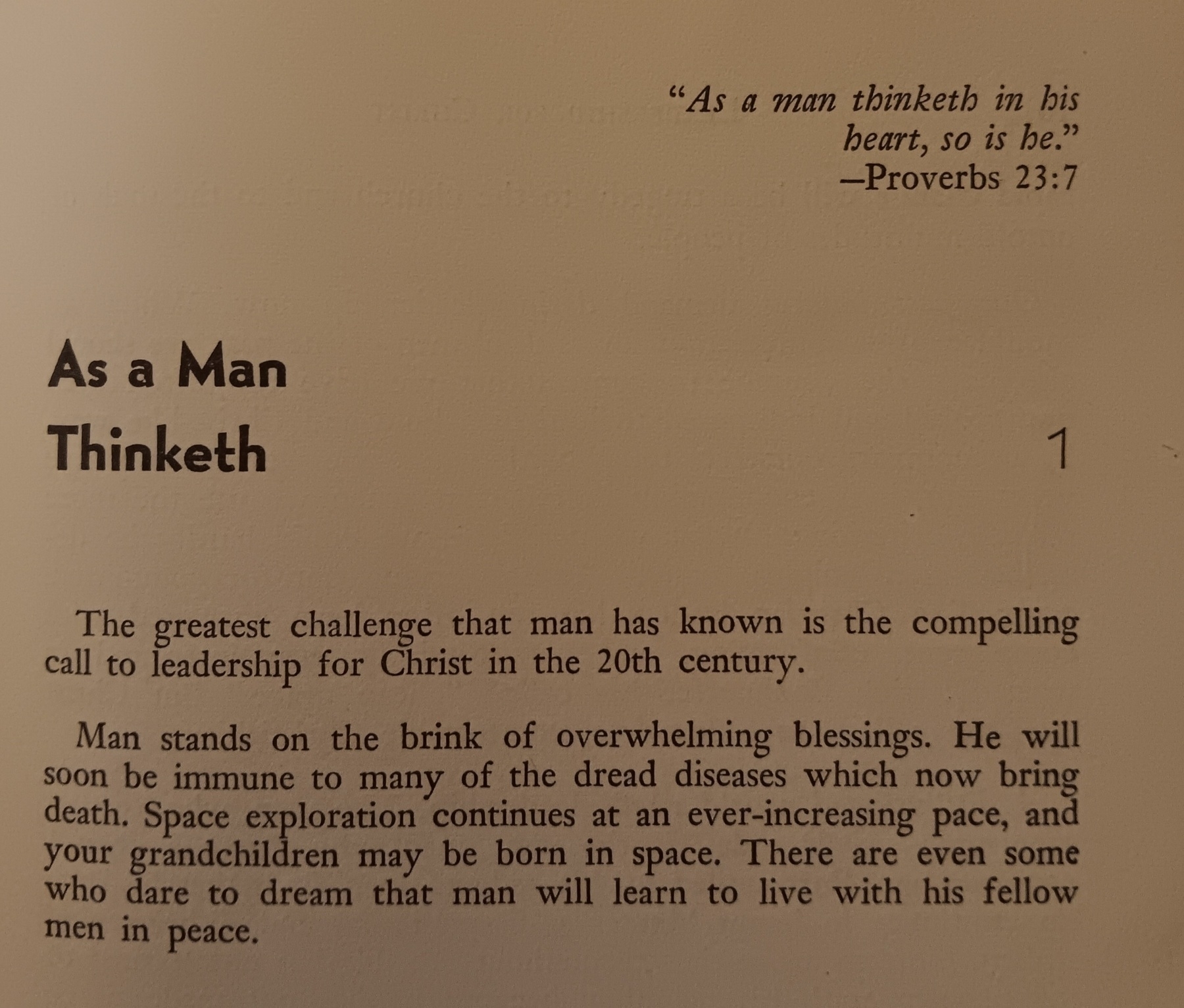
I think you can gather the gist of the book from surveying some of the graphics sprinkled throughout:
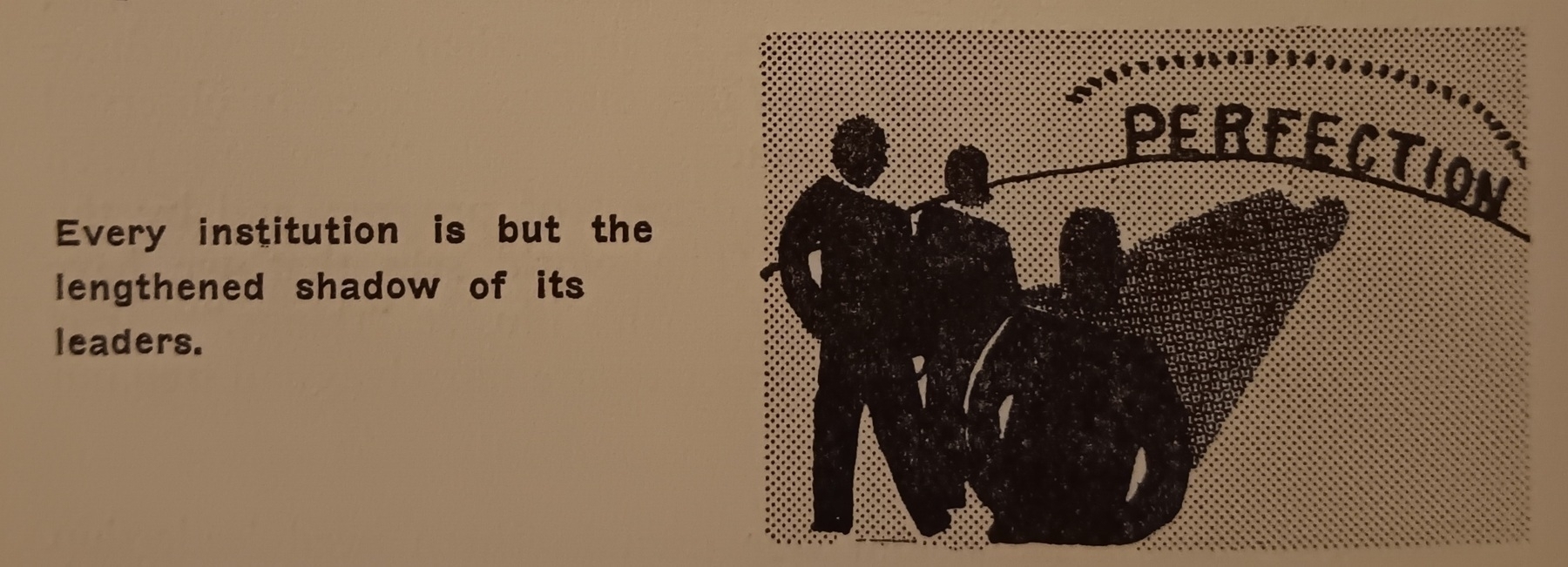
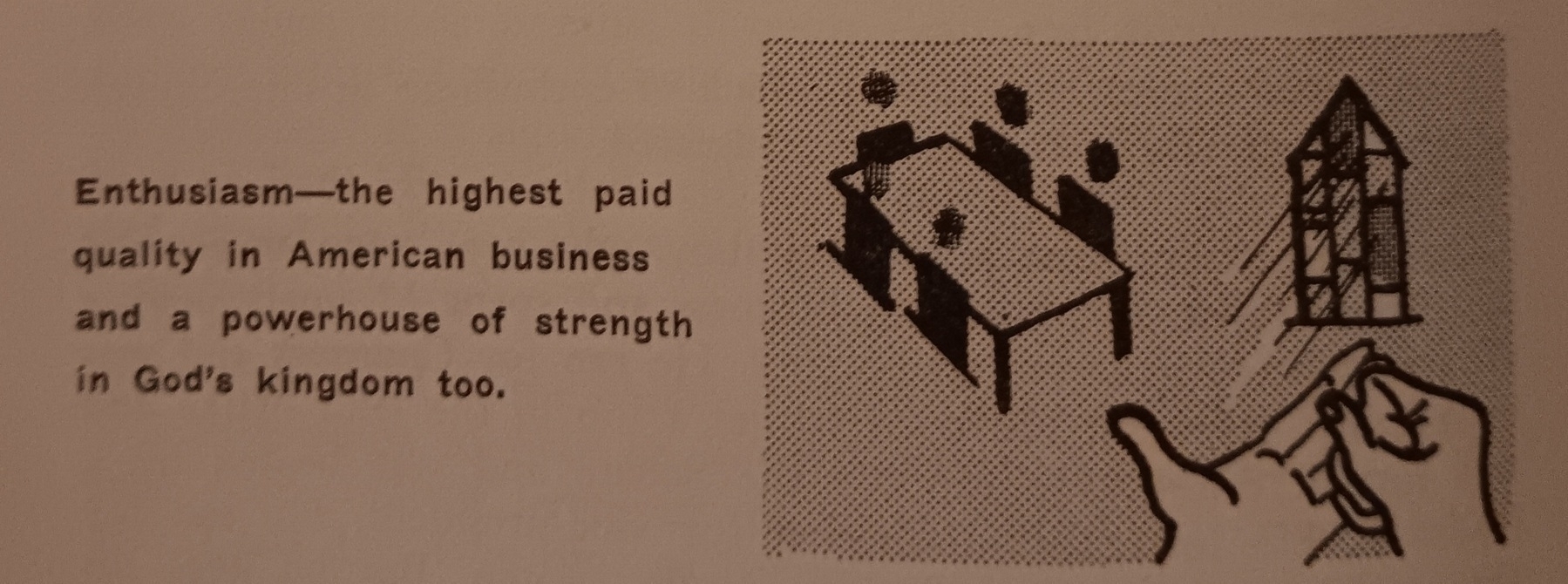
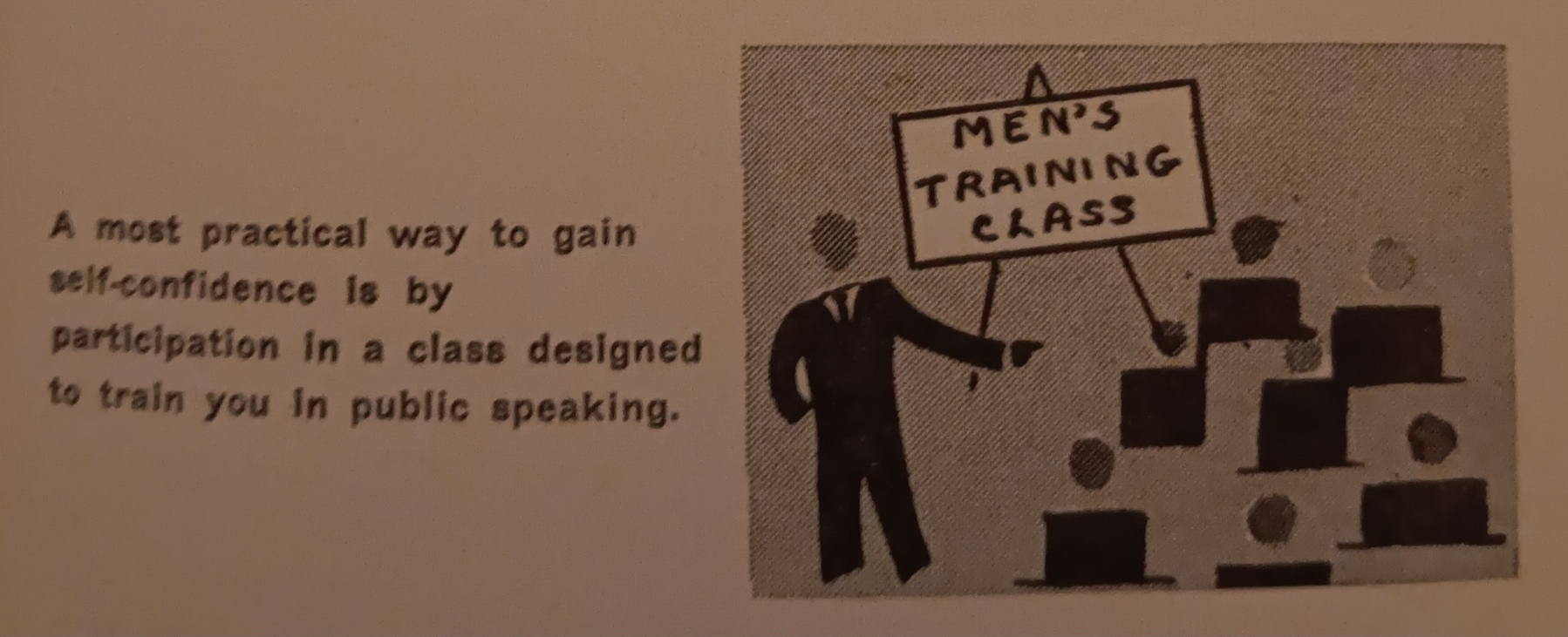
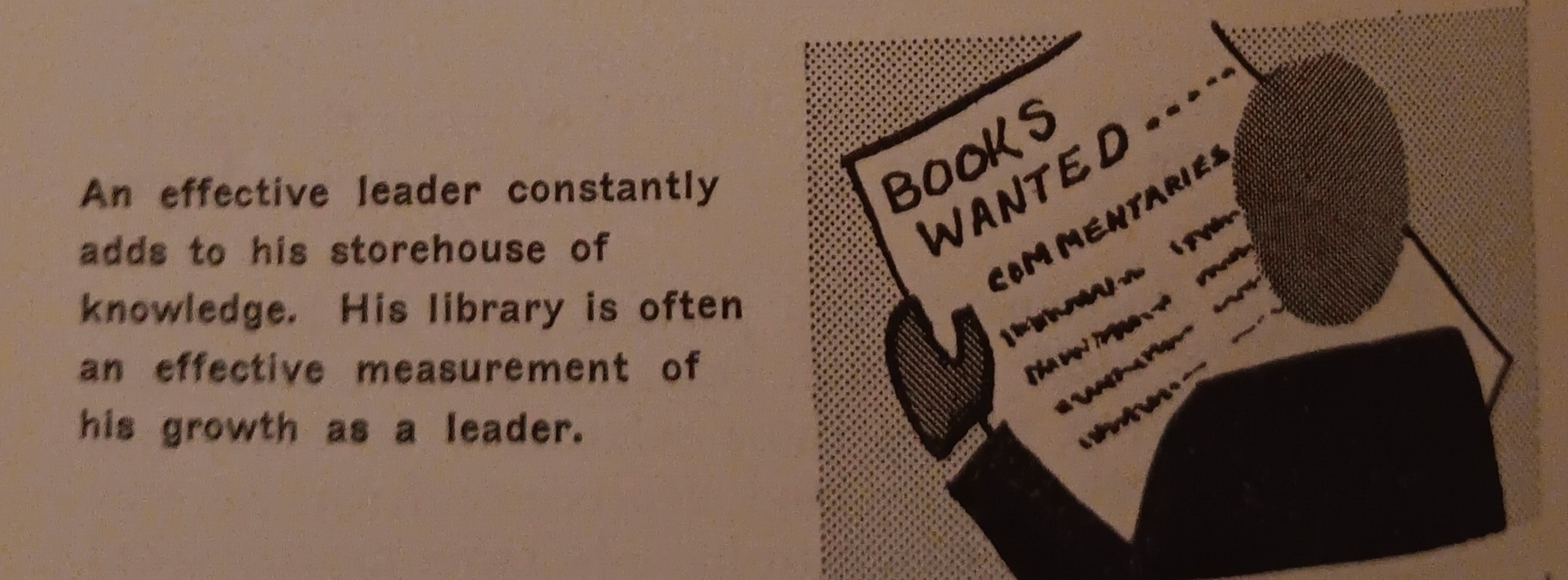
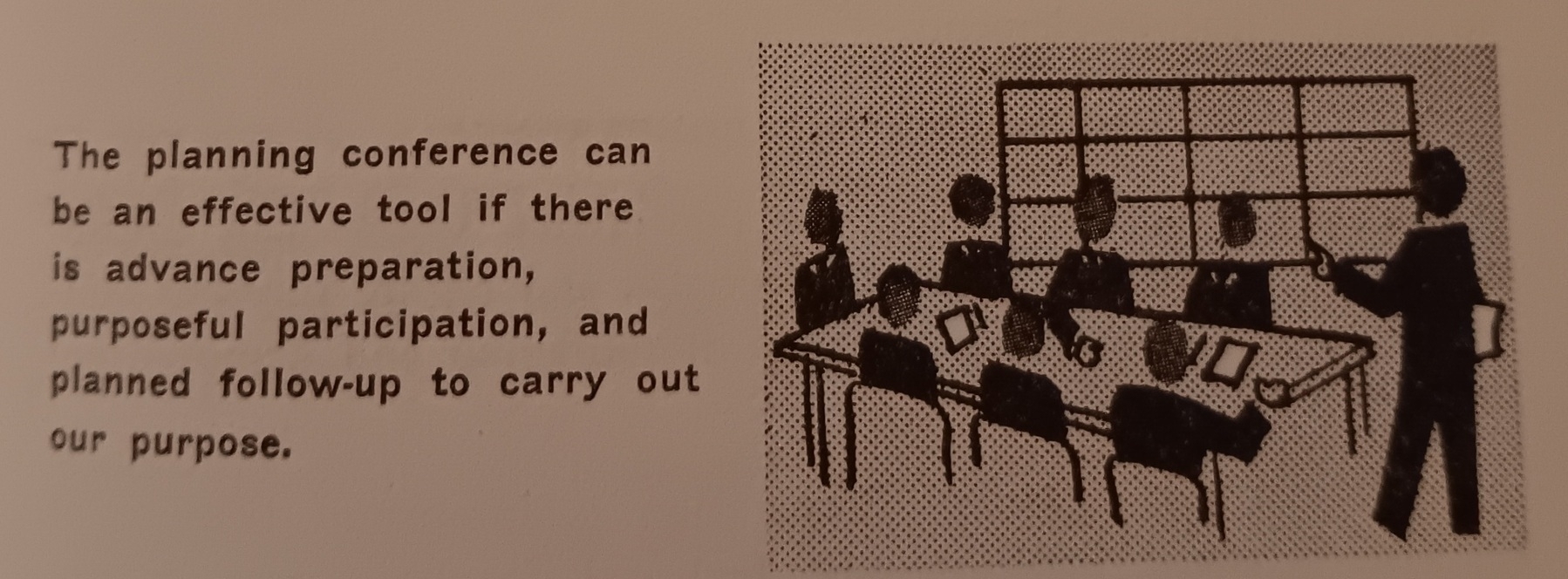
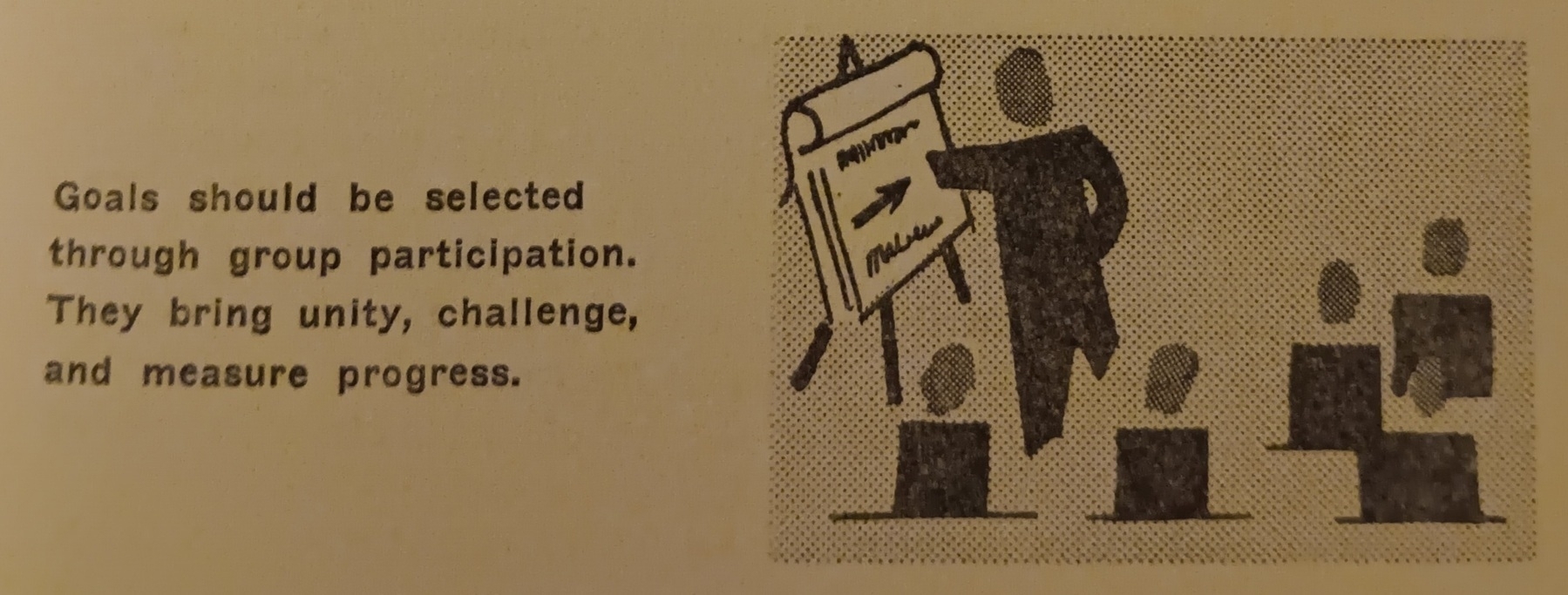
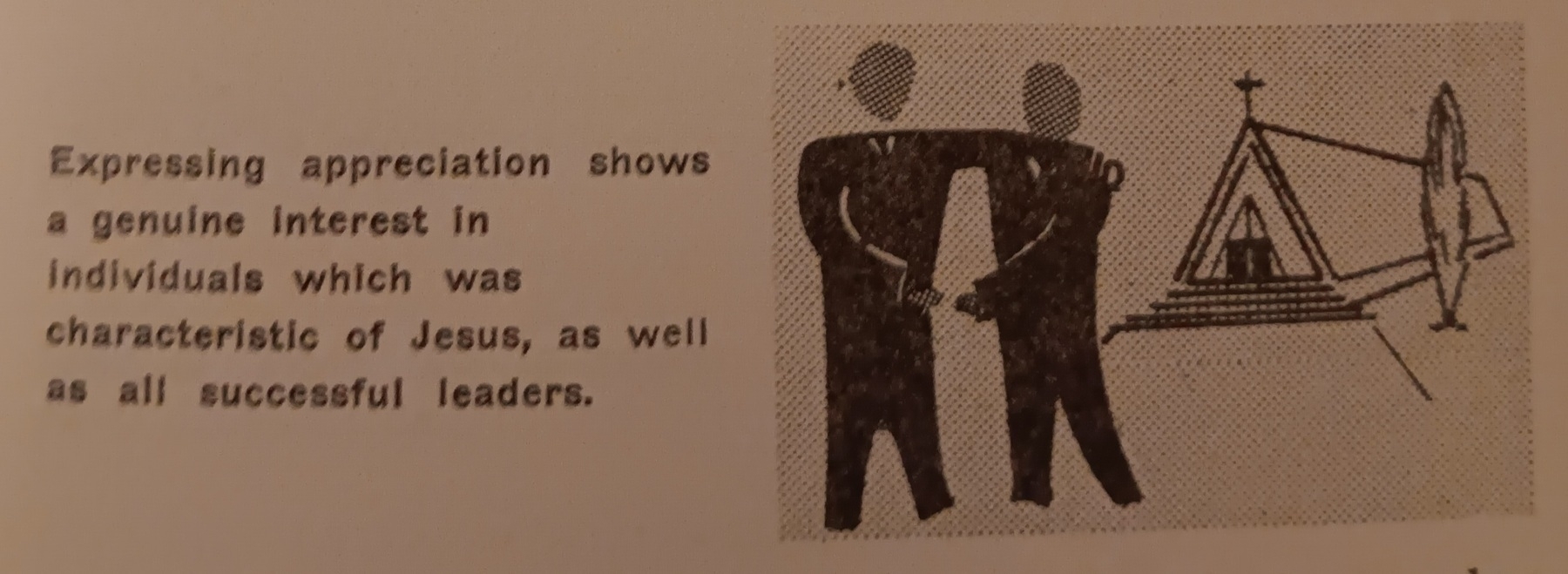
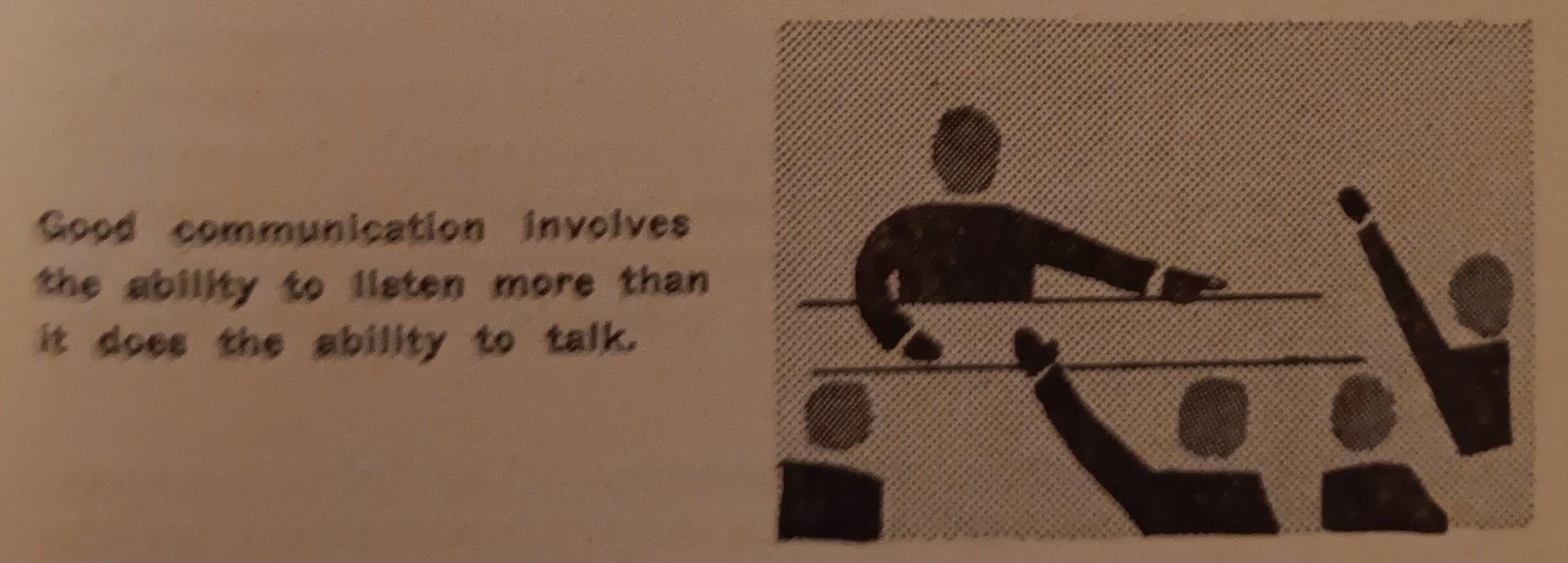
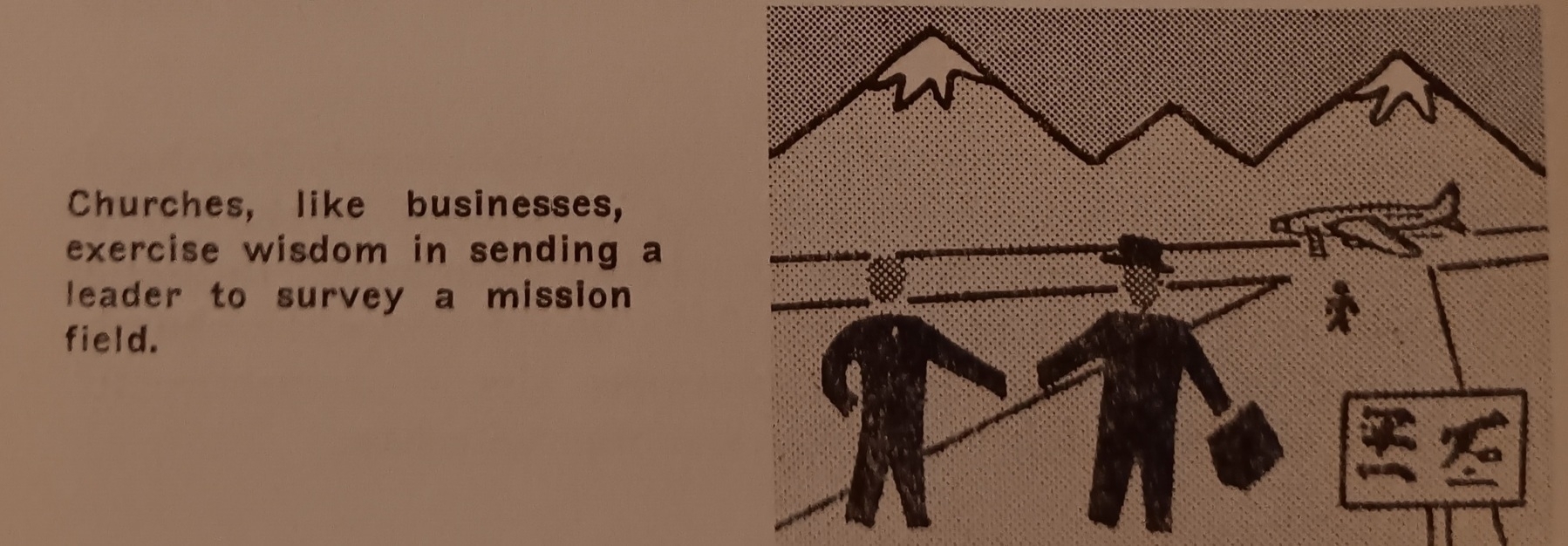
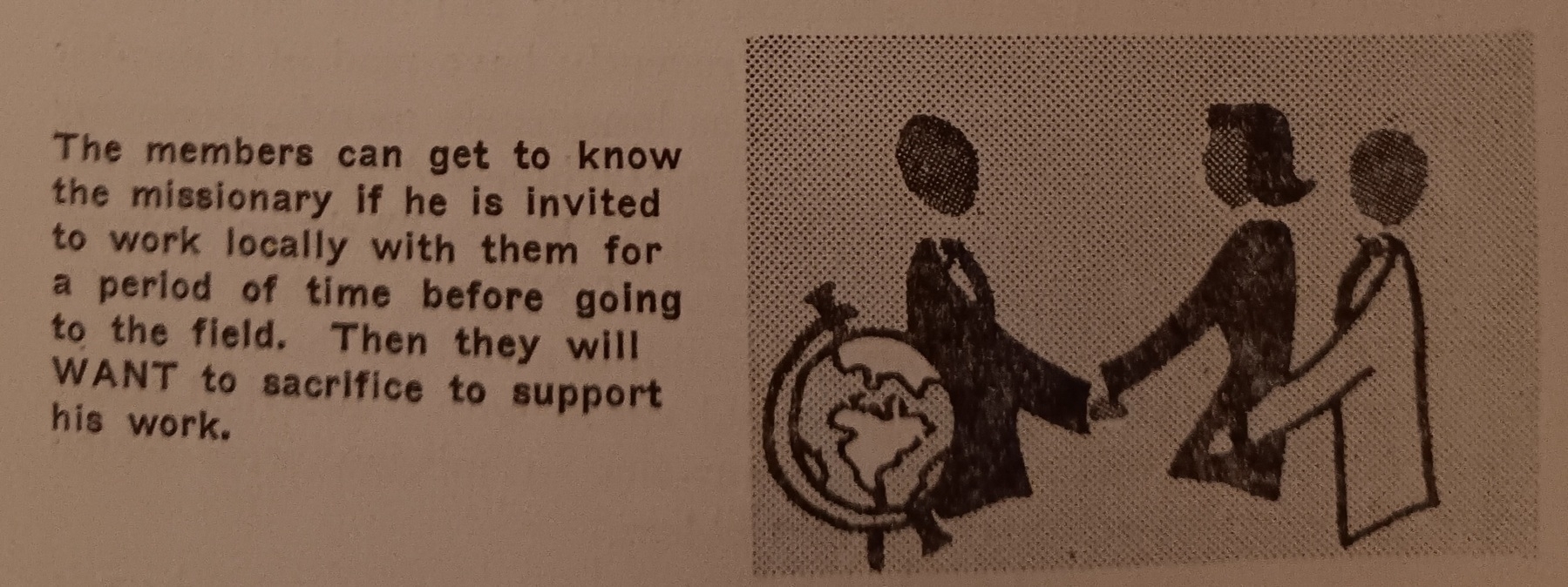
I appreciate the Petersonian note sounded in this one:
